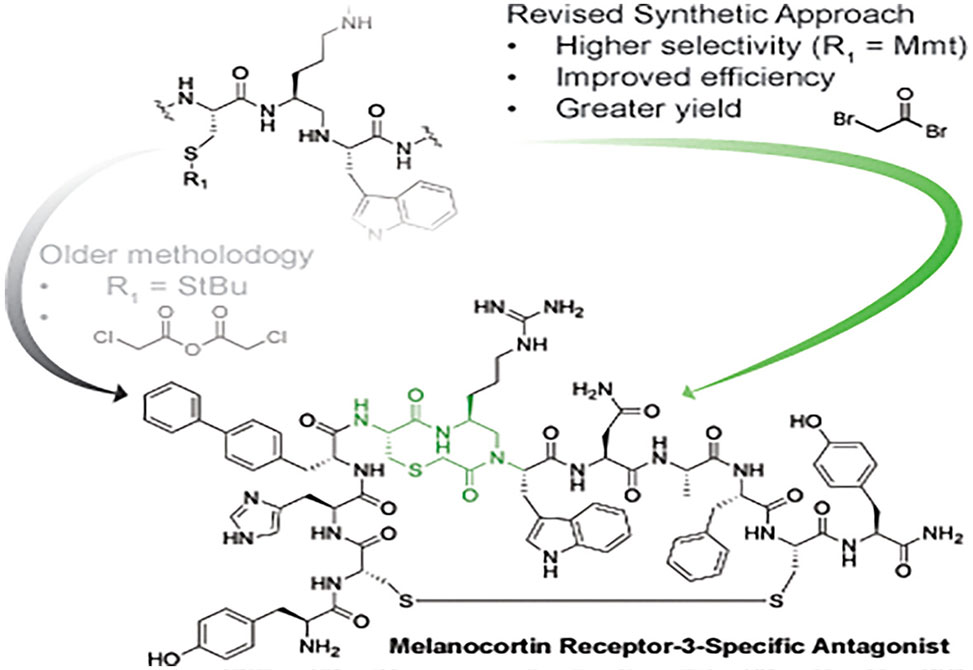APS Research & News
Anorexia and Weight Loss
This article reflects work in the Mapp Lab
The melanocortin-3 receptor, MC3R, is a G-protein coupled receptor that regulates appetite and is a potential therapeutic target for anorexia and weight loss treatments. The report of a highly selective synthetic antagonist of MC3R, Cpd11, represents a major advance toward therapeutic targeting of MC3R. However, Cpd11 is challenging to access synthetically, severely limiting its use and additional structural optimization.
Published in Peptide Science, researchers in the Mapp Lab at the University of Michigan, outline an improved synthesis of Cpd11 that addresses three major synthetic challenges, including the formation of Cpd11's structurally unique bicyclic core. With these changes, Cpd11 was readily produced (2.3 mg from a 0.05 mmol scale versus ≪0.1 mg using the original synthetic methodology, and utilized in MC3R studies in C57BL/6J male mice.
Thus, this new approach will increase the accessibility of Cpd11 and is translatable to related bicyclic agonists and antagonists for other melanocortin receptors and may have general applicability toward the synthesis of other multicyclic poly-cysteine peptides.

Published here on Nov. 22, 2024
Title: An Improved Synthesis of Compound 11, a Unique Bicyclic Melanocortin-3 Antagonist
Authors: Stephen T. Joy, Naima S. Dahir, Roger D. Cone, Anna K. Mapp
Citation: Peptide Science, 22 November, 2024, Early View,